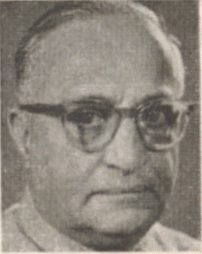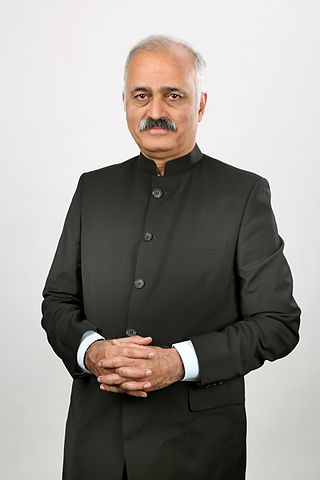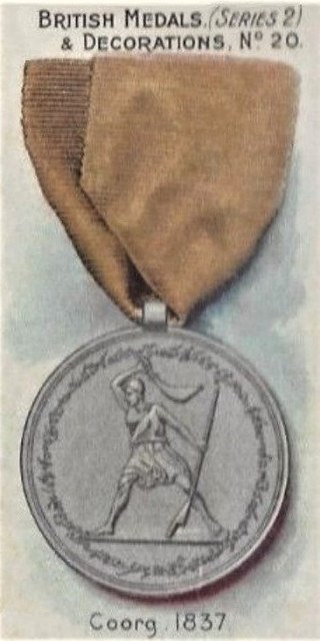Sources
Administrators of provinces in British India | ||
|---|---|---|
| Governors |
| |
| Lt. Governors |
| |
| Chief Commissioners |
| |
| Commissioners | ||
| Superintendents |
| |
| ||
Below is a list of chief commissioners of Coorg Province :
| # | Name | Assumed office | Left office | Remarks [a] |
|---|---|---|---|---|
| 1 | Lewin Bentham Bowring | 24 February 1869 | 21 February 1870 | |
| 2 | Sir Richard John Meade | 21 February 1870 | 5 June 1876 | |
| 3 | Charles Burslem Saunders | 5 June 1876 | 1 April 1878 | |
| 4 | Sir James Davidson Gordon | 1 April 1878 | 8 June 1883 | |
| 5 | Sir James Broadwood Lyall | 8 June 1883 | 15 January 1889 | |
| 6 | Sir Oliver St John | 15 January 1889 | 1 June 1891 | |
| 7 | Sir Harry North Dalrymple Prendergast | 1 June 1891 | 16 April 1892 | Acting |
| 8 | Philip Durham Henderson | 16 April 1892 | 20 February 1895 | |
| 9 | William Lee-Warner | 20 February 1895 | 18 September 1895 | |
| 10 | Sir William Mackworth Young | 18 September 1895 | 7 December 1896 | |
| 11 | Donald Robertson | 7 December 1896 | 5 November 1903 | |
| 12 | Sir James Austin Bourdillon | 5 November 1903 | 22 November 1905 | |
| 13 | Sir Stuart Mitford Fraser | 22 November 1905 | 26 August 1910 | |
| 14 | Sir Hugh Daly | 26 August 1910 | 7 April 1916 | |
| 15 | Henry Venn Cobb | 7 April 1916 | 8 March 1920 | |
| 16 | Sir William Pell Barton | 8 March 1920 | 29 June 1925 | |
| 17 | Sir Steuart Edmund Pears | 29 June 1925 | 23 June 1930 | |
| 18 | Richard John Charles Burke | 23 June 1930 | 5 May 1933 | |
| 18 | Charles Terence Chichele Plowden | 5 May 1933 | 9 December 1937 | |
| 18 | John de la Hay Gordon | 9 December 1937 | 1 July 1940 | |
| 19 | J. W. Pritchard | 1 July 1940 | 26 April 1943 | |
| 20 | Diwan Bahadur Ketoli Chengappa | 26 April 1943 | 1949 | |
| 21 | C. T. Mudaliar | 1949 | 1952 | |
| 22 | Daya Singh Bedi | 1952 | 1956 |
a ^ The Acting Governors were appointed for a temporary period until the post of Governor was filled.

Kodagu district is an administrative district in the Karnataka state of India. Before 1956, it was an administratively separate Coorg State, at which point it was merged into an enlarged Mysore State.

The Kodava people or Kodavas or Codavas are an ethno-linguistic group from the region of Kodagu in the southern Indian state of Karnataka, who natively speak the Kodava language. They are traditionally land-owning agriculturists and patrilineal, with martial customs. Kodavas worship ancestors and weapons. They used to worship swords, bows, arrows and later guns. Hence, Kodavas are the only ones in India permitted to carry firearms without a license.

The district of Kodagu in present-day Karnataka comprises the area of the former princely state of the same name.

The Irupu Falls are located in the Brahmagiri Range in the Kodagu district of Karnataka, India, bordering the Wayanad district of Kerala. It is a fresh water cascade and is situated at a distance of 48 km from Virajpet on the highway to Nagarhole. The falls are also known as the Lakshmana Tirtha Falls, derived from the name of the tributary of Cauvery which starts from these falls, the Lakshmana Tirtha River.

Cheppudira Muthana Poonacha was the Chief Minister of Coorg, Minister in Mysore State, Member of Parliament, Union Railway Minister of India and Governor of Madhya Pradesh and Governor of Orissa.

The political history of the region on the Deccan Plateau in west-central peninsular India that was later divided into Mysore state and Coorg province saw many changes after the fall of the Hindu Vijayanagara Empire in 1565. The rise of Sultan Haidar Ali in 1761 introduced a new period.

The Province of Sira, also known as Carnatic-Balaghat, was a subah of the Mughal empire in South India that was established in 1687 by conquering emperor Aurangzeb and lasted until 1757. The province, which comprised the Carnatic region south of the Tungabhadra river, had its capital in the town of Sira. It was composed of seven parganas (districts): Basavapatna, Budihal, Sira, Penukonda, Dod-Ballapur, Hoskote and Kolar; in addition, Harpanahalli, Kondarpi, Anegundi, Bednur, Chitaldroog and Mysore were considered by the Mughals to be tributary states of the province.
The captivity of Kodavas (Coorgis) at Seringapatam was the period of capture, deportation, and imprisonment of Kodava Takk speaking Coorgis who rebelled against Tippu Sultan, the de facto ruler of the Kingdom of Mysore, they were caught during a number of attempts to suppress their rebellion in the 1780s.

The Coorg War was fought between the British East India Company and the State of Coorg in 1834. Defiance of the Raja of Coorg, a small state in South India, led to a short but bloody campaign in 1834. In February 1834, a force of 7,000 was assembled under the command of Brigadier General Lindsay to commence operations against the Raja, who had begun hostilities against the British. Due to the poor state of roads, the force was divided into four columns, which were to enter Coorg from different directions and converge on the capital of Mercara. On 11 March, the Northern Division under the command of Colonel Gilbert Waugh entered the territory of Coorg and on 3 April, the leading troops made contact with the enemy. At noon, the advanced guard arrived in front of the fortified position of Soamwar Pettah. The force launched an attack on the position but was forced to retreat after a severe mauling. The leader of the Coorg resistance at was 'Madanta' (Mathanda) Appachu. Similar fate was suffered by another column.

Coorg State was a Part-C state in India which existed from 1950 to 1956. When the Constitution of India came into force on 26 January 1950, most of the existing provinces were reconstituted into states. Thus, Coorg Province became Coorg State. Coorg State was ruled by a Chief Commissioner with Mercara as its capital. The head of the government was the Chief Minister. Coorg State was abolished on 1 November 1956 as per the States Reorganisation Act, 1956 and its territory were merged with Mysore State. Presently, Coorg forms a district of Karnataka state.

Coorg Province was a province of British India from 1834 to 1947 and the Dominion of India from 1947 to 1950. Mercara was the capital of the province. It was administered by a Commissioner and later, Chief Commissioner appointed by the Government of India. The Chief Commissioner, was usually based in Bangalore. From 1834 to 1881, the Chief Commissioner, was also the Commissioner of Mysore. From 1881 to 1940, the Chief Commissioner was usually the British Resident to the princely state of Mysore.

Palanganda T. Bopanna is an author and journalist from Kodagu (Coorg) in Karnataka, India. Bopanna has worked for some of the leading Indian English dailies, including The Times of India, Bangalore, for 12 years, and The Pioneer, as their Special Correspondent (Bangalore) for 13 years. He has written five books.

The Kingdom of Coorg was an independent kingdom that existed in India from the 16th century until 1834. It was ruled by a branch of the Ikkeri Nayaka. From 1780 to 1788, the kingdom was occupied by neighbouring Mysore but the Rajah of Coorg was restored by the British and became a protectorate of the British East India Company on 26 October 1790. In 1834, the then Raja of Coorg rebelled against British authority, sparking the Coorg War. The brief conflict led to the British to annex the kingdom in the same year, who transformed the region into a province of British India.
Sir James Davidson Gordon (1835–1889) was a British civil servant and administrator who served as the Chief Commissioner to Mysore and Coorg from 1878 to 1881 and as the Chief Commissioner of Coorg up to 1883. He is credited with having introduced railways in the Kingdom of Mysore.
The Coorg Legislative Assembly was a legislative body which introduced laws for Coorg State from 1950 to 1956. It had its origins in the Coorg Legislative Council established on 26 January 1924 as a representative body of the Chief Commissioner's province of Coorg. When the Constitution of India came into force on 26 January 1950, the name of the body was officially changed to Coorg Legislative Assembly. The first and only general election to the assembly took place in 1952. It was eventually dissolved in 1956 when Coorg State was merged with the neighbouring Mysore State.
The New Year Honours 1904, announced at the time as the Indian Honours, were appointments to various orders and honours of British India. The list was published in The Times on 1 January 1904, and the various honours were gazetted in The London Gazette on the same day.
The 1874 Birthday Honours were appointments by Queen Victoria to various orders and honours to reward and highlight good works by citizens of the British Empire. The appointments were made to celebrate the official birthday of the Queen and were published in The London Gazette in May and June 1874.
Coorg was a constituency of the Lok Sabha. It was used in the parliamentary election of 1951–1952. The constituency elected a single member of the Lok Sabha and was the sole Lok Sabha seat for the Coorg State. As of 1952, the constituency had 94,593 eligible voters.

The Coorg Medal was awarded by the Honourable East India Company (HEIC) to local forces who remained loyal during the Coorg rebellion of 1837.